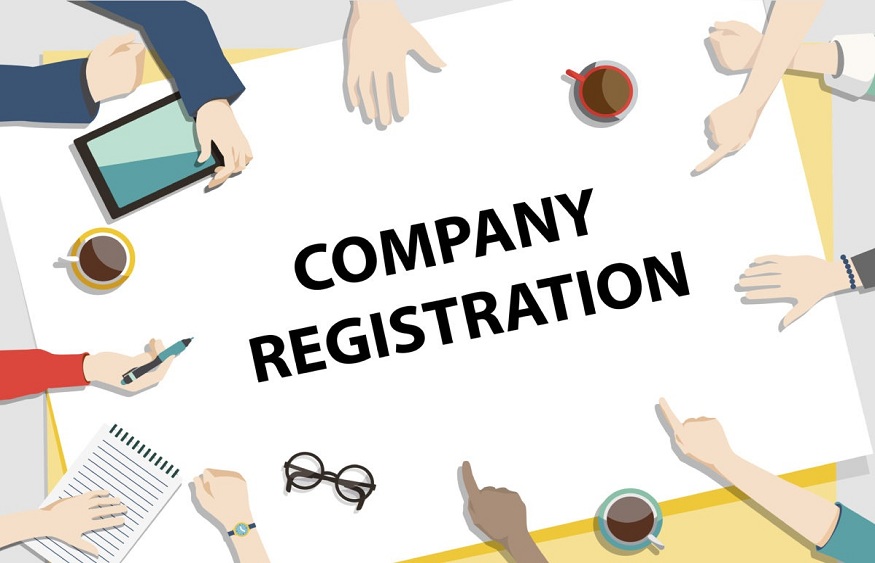Are you a small business owner who thinks that not registering your company is the way to go? Think again. While it may seem like an easy way out, going unregistered can actually hurt your business in the long run. From missed opportunities to legal repercussions, there are many reasons why registration should be at the top of your priority list. In this blog post, we’ll explore the potential pitfalls of staying unregistered and explain why taking the time to properly register your business can pay off in spades down the line. So buckle up and let’s dive into why going unregistered might just be hurting your business more than you think!
Introduction to the Consequences of Not Being Registered
If you’re not registered with the government, you could be missing out on opportunities for your business. You may not be able to get certain licences or permits, which can limit your ability to operate. You also may not be able to participate in government contracting, meaning you could miss out on lucrative business deals. Not being registered can also make it difficult to open a bank account or get financing for your business. All of these factors can make it harder for your business to succeed in the long run.
Reasons for Not Registering a Business in the UK
There are a number of reasons why you may not want to register your business in the UK. The main reason is that it can be costly and time consuming. Other reasons include:
-You may not be eligible to register your business in the UK if you don’t have the right type of visa
-The process can be complicated and confusing
-You may not be able to get the type of funding you need if you’re not registered
-It can be difficult to build up a good reputation if you’re not registered
-You may find it harder to get customers if you’re not registered
What Are the Legal Implications?
There are a number of legal implications associated with operating a business without registering it with the appropriate government agencies. For starters, you may not be able to legally enforce contracts that you have entered into with customers or clients. This could lead to financial losses and damage to your reputation. Additionally, unregistered businesses are not typically protected by law from things like trademarks and copyright infringement. This means that someone could steal your ideas or brand and use it for their own gain. If your business is not registered, you may not be able to file for bankruptcy if things go wrong. This could leave you personally liable for any debts incurred by the business.
How Can You Avoid These Pitfalls?
There are a few key things to keep in mind if you want to avoid the potential pitfalls of going unregistered with the state. First, make sure you have a registered agent on hand at all times. This person will be responsible for receiving official correspondence and legal documents on behalf of your company, so it’s important to have someone you trust in this role.
Second, stay up to date on all filings and deadlines. The last thing you want is to miss a critical filing deadline and face serious penalties as a result. Keeping detailed records of everything related to your business will help ensure you don’t overlook anything important.
Be prepared to pay annual fees associated with maintaining your business registration. These fees vary from state to state, but they’re typically not very expensive. However, failing to pay them on time can result in your registration being revoked, so it’s important to budget for these costs and make timely payments.
How to Register a Business
If you’re running a business, it’s important to register it with the proper authorities. Failure to do so can result in hefty fines and other penalties.
The process of that you’ll need to follow to register a business is relatively simple and can be done online. You’ll need to provide some basic information about your business, such as its name, address, and contact details. You’ll also need to choose a business structure and register for any necessary licences or permits.
Once your registration is complete, you’ll be able to access a range of benefits, including reduced tax liability and increased credibility with customers and suppliers. Registering your business will also make it easier to obtain funding and expand into new markets.
Benefits of Being Registered
If you’ve been running your business without registering it, you may be wondering if it’s really worth the hassle. After all, registration can be expensive and time-consuming. However, there are several benefits to being registered that can save you money and help your business in the long run.
One of the biggest benefits of registration is protection from liability. If someone sues your business, they can only go after your assets if your business is registered. This means that if you have a limited liability company (LLC) or corporation, your personal assets are protected in the event of a lawsuit.
Another benefit of registration is that it makes it easier to get funding. Investors and lenders are more likely to give money to a registered business than an unregistered one. This is because they know that the business is legitimate and that their investment is more likely to be safe.
Registering your business gives you credibility with customers and suppliers. Customers are more likely to buy from a registered business, and suppliers are more likely to work with a registered business. This can help you get better terms and prices from suppliers, and it can help you attract new customers.
Conclusion
Going unregistered for your business may seem like an attractive option in the short-term, but ultimately it can have serious negative repercussions in the long run. Not only do you put yourself at risk of legal trouble if caught operating without a valid license, but you also miss out on essential tax deductions and other benefits that come with being registered. As such, it’s imperative to take the time to properly register your business so that you can enjoy all of these advantages – and make sure your company is set up for success.





